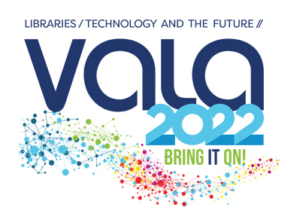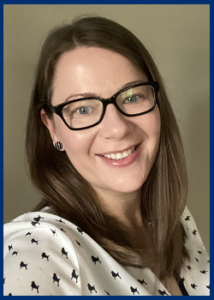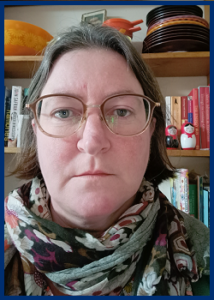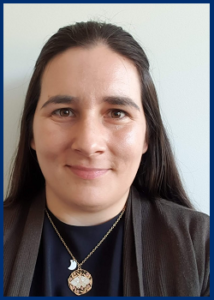DAP Hero Competition: taking data management to new heights at CSIRO
VALA2022 E-Poster
Tracey May
- CSIRO
Christina Street
- Data Librarian, Information Management and Technology
- CSIRO
Amy Miniter
- Data Librarian, Information Management and Technology
- CSIRO
Please tag your comments, tweets, and blog posts about this session: #vala2022
Abstract
CSIRO’s Data Access Portal (DAP) is an international Core Trust Certified data repository that provides a secure platform for discovery, access and reuse of software and data assets. In 2021, CSIRO Agriculture & Food Data Champions, led by Dr Jen Taylor and the Research Data Support (RDS) team, devised a novel training method, the DAP Hero Competition, to foster a new learning culture at CSIRO. The Agile project management methodology was used to frame the project and implement activities. The competition itself was run over a three-month period.
The competition aimed to promote data stewardship through engagement with existing and novel approaches to training. The award categories motivated staff to develop their technical skills when working with legacy data, multidisciplinary data, large datasets and established data sharing as part of workflows. Entrants were encouraged to engage with a practical learning experience and to re-evaluate the time commitment required to create a deposit and safeguard data. A competitive, team-based framework and an attractive reward for winners provided the initial impetus for engagement. A superhero theme was chosen to demarcate the competition as quirky, fun and different from previous training approaches.
Training was presented as ‘coaching’ by members of the RDS team, rebranded as the ‘DAP Genius’. A sense of urgency was generated by creating a perceived shortage of training access by prioritising first responders for coaching ‘to help them win’. The DAP Genius ran Hacky Hours, gave live DAP demonstrations and offered one-on-one feedback for draft deposits. This approach successfully engaged with early adopters who contributed an initial flurry of entries. The provision of quality metadata was infused into the competition through a personalised review mechanism
from the DAP Genius who provided feedback on metadata to entrants via a call- back service. Entrants could opt-in to this process by indicating that they needed help with their deposits on their entry form. After this training, there was a noticeable improvement in the quality of metadata for entrants.
Despite conventional publicity delivered in high-profile meetings, entries plateaued at the halfway mark of the competition. A need was recognised to reignite interest and motivation to get people over the hurdle of learning and working the deposit process against a backdrop of competing demands. The project team innovated a series of ‘Sports Desk’ videos in which prominent staff commentated on the competition ‘leader board’ and “half time boundary reporters” interviewed teams dressed as superheroes on their motivations to use the DAP as part of their data management.
The DAP Hero Competition was an enormous success, adding 86 new deposits (2.5TB of data) representing a 46% increase of total Agriculture and Food datasets that had been contributed over a ten-year period. All entrants were required to have an ORCID, which resulted in the increase of ORCID uptake across Agriculture and Food. The competition highlighted the benefits of peer-to-peer learning, created positive associations for research data management and developed skills for career progression.
Biography
Tracey May is a Data Champion for CSIRO Agriculture and Food. As a member of the Research Data Support team, she utilises her experience with scientific data to help others with data management planning. Her focus is on creating a positive environment to support and nurture digital transformation.
Christina Street is a Data Librarian at CSIRO. As a member of the of the Research Data Support team, she assists with data management planning and driving cultural change to viewing and preserving data as a valuable asset. In addition, she provides support and training with the Data Access Portal, CSIRO’s permanent data archive and the Research Data Planner.
![]()
This work is licensed under a Creative Commons Attribution-NonCommercial-NoDerivs 3.0 Unported License




 Leah Gustafson is a Digital Capability Adviser at the Griffith University Library supporting staff and students with their technology enquiries. She has a background in higher education teaching, digital development, creative industries, and science. Leah likes to focus on helping people improve their digital literacies to achieve their goals
Leah Gustafson is a Digital Capability Adviser at the Griffith University Library supporting staff and students with their technology enquiries. She has a background in higher education teaching, digital development, creative industries, and science. Leah likes to focus on helping people improve their digital literacies to achieve their goals Jaime Royals is currently the Senior Manager, Collections & Access Services at the University of Adelaide. Jaime has worked in several roles at the University Library including as a Liaison Librarian and as the Manager of Learning and Teaching Innovation. She has a keen interest in developing and innovating library services in collaboration with stakeholders, in line with best practice and with an evidence-based approach. She is also partial to terrible dad jokes!
Jaime Royals is currently the Senior Manager, Collections & Access Services at the University of Adelaide. Jaime has worked in several roles at the University Library including as a Liaison Librarian and as the Manager of Learning and Teaching Innovation. She has a keen interest in developing and innovating library services in collaboration with stakeholders, in line with best practice and with an evidence-based approach. She is also partial to terrible dad jokes!


 Michelle Morgan qualified as a Librarian in 2007 and initially worked in the public library sector. In 2009 she started working at the University of Western Australia in the Information Resources & Access Management department, and, in 2010, she was appointed in the newly created Ebook Librarian role (in addition to roles in budget, institutional repository, and electronic holdings) . In 2014, after 5 years at UWA, Michelle crossed to the vendor side and also moved across to the opposite side of the country to work first with ProQuest and then Innovative Interfaces (III). At the end of 2017 an interesting opportunity arose at Swinburne University of Technology and Michelle secured the new Library Resources Analyst position. In this role Michelle seeks to wrangle and present data in meaningful ways to assist in decision making and to help the library showcase the resources and services they provide.
Michelle Morgan qualified as a Librarian in 2007 and initially worked in the public library sector. In 2009 she started working at the University of Western Australia in the Information Resources & Access Management department, and, in 2010, she was appointed in the newly created Ebook Librarian role (in addition to roles in budget, institutional repository, and electronic holdings) . In 2014, after 5 years at UWA, Michelle crossed to the vendor side and also moved across to the opposite side of the country to work first with ProQuest and then Innovative Interfaces (III). At the end of 2017 an interesting opportunity arose at Swinburne University of Technology and Michelle secured the new Library Resources Analyst position. In this role Michelle seeks to wrangle and present data in meaningful ways to assist in decision making and to help the library showcase the resources and services they provide. Anna Rubinowski joined Swinburne University of Technology as Datasets Librarian in 2020 where she manages the evaluation, selection, acquisition, and renewal of the Library’s online resources. She completed her Master of Information Management at RMIT in 2014 and worked previously at Monash University in the role of the Ada Booth Librarian and Collection Librarian. She is the CAUL Content Coordinator for Swinburne University of Technology and is currently one of two CAUL Content Coordinator Representatives on the CAUL Content Procurement Committee. Anna has a keen interest in data analysis and practical evidence on return of investment, and how data visualisation can support demonstrating the value of Library collections and services.
Anna Rubinowski joined Swinburne University of Technology as Datasets Librarian in 2020 where she manages the evaluation, selection, acquisition, and renewal of the Library’s online resources. She completed her Master of Information Management at RMIT in 2014 and worked previously at Monash University in the role of the Ada Booth Librarian and Collection Librarian. She is the CAUL Content Coordinator for Swinburne University of Technology and is currently one of two CAUL Content Coordinator Representatives on the CAUL Content Procurement Committee. Anna has a keen interest in data analysis and practical evidence on return of investment, and how data visualisation can support demonstrating the value of Library collections and services. Acquisitions Team. Mish is passionate about access to quality information and excited about the ways in which technology can support research, learning and teaching. Her role revolves around coordinating journal subscriptions, processing annual renewals, initiating new orders, liaising with vendors and the agent, invoicing, and troubleshooting online access. More recently, Mish has been learning new skills in statistics collection, analysis and visualisation. Previous areas Mish has been a part of include Swinburne’s Aleph and Alma implementation projects, repository service including ERA requirements, copyright service, print serials collection management and loans customer service. Mish’s interests include music performance and she was an original member of Swinburne Library Ukelele Group. Recognition: Winner – ALIA Student Award 2015; Winner – Institute for Information Management Prize 2015; Nominee – Zenith Undergraduate Information Studies Prize.
Acquisitions Team. Mish is passionate about access to quality information and excited about the ways in which technology can support research, learning and teaching. Her role revolves around coordinating journal subscriptions, processing annual renewals, initiating new orders, liaising with vendors and the agent, invoicing, and troubleshooting online access. More recently, Mish has been learning new skills in statistics collection, analysis and visualisation. Previous areas Mish has been a part of include Swinburne’s Aleph and Alma implementation projects, repository service including ERA requirements, copyright service, print serials collection management and loans customer service. Mish’s interests include music performance and she was an original member of Swinburne Library Ukelele Group. Recognition: Winner – ALIA Student Award 2015; Winner – Institute for Information Management Prize 2015; Nominee – Zenith Undergraduate Information Studies Prize. After a career spanning work in copyright, electronic resource management, reading lists and licensing, Lachlan Young became the inaugural Data Analytics Librarian at the University of South Australia in February 2020.
After a career spanning work in copyright, electronic resource management, reading lists and licensing, Lachlan Young became the inaugural Data Analytics Librarian at the University of South Australia in February 2020.